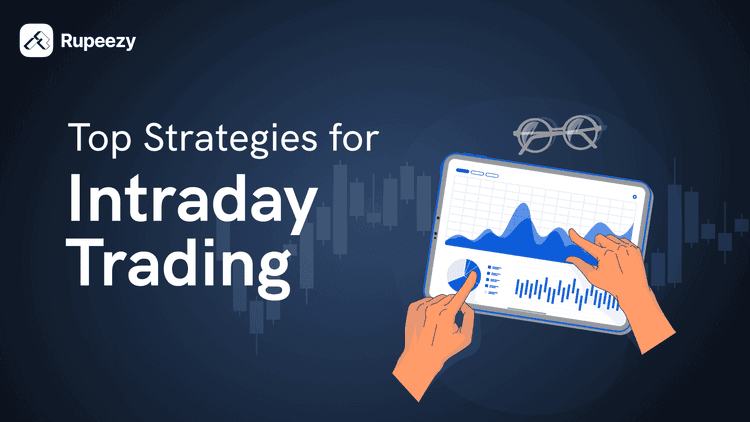Master Margin Call: Definition, Examples, Tips, Who Can Trade


00:00 / 00:00
Whether you are a new investor or an experienced trader, you must have heard of the term ‘margin call’ especially when markets are volatile.
Margin calls often create panic for investors and traders and SEBI has placed stringent regulations to avoid trading with excess leverage and a situation where margin calls are triggered often in trading accounts.
Before we learn about margin call meaning, let us discuss margin trading briefly.
What is Margin Trading?
To understand this simply, assume you have Rs. 100 and you spot an opportunity in the market that you’d like to trade in, but you are short of cash.
You can open an MTF account with your broker by signing an agreement and submitting income proof.
Your broker provides a margin fund 4x of your equity i.e. Rs 400 on your Rs. 100 equity. Broker would charge an interest on the fund for the number of days you borrow and your position is open.
This is known as margin trading. If your trade is positive, you earn a multiplier profit on Rs 500 investment (with an equity of only Rs 100).
What is Margin?
When you purchase securities on margin funding, the regulator has mandated that you must maintain a minimum – initial margin and maintenance margin.
Both initial margin and maintenance margin are calculated as a percentage of total investment value.
- Initial margin is the amount you deposit before you trade.
- Maintenance margin is the minimum investor equity to be maintained at all times in the account.
What is an Example of Margin Call?
Now in the above example, to assume that your stock selection would always be right and markets will not give you surprises is hypothetical.
In real world, markets can move in any direction, sometimes take wild turns for reasons not in anyone’s control or prediction, especially in the short run.
At such times your investment can go south and the portfolio can erode.
As per SEBI rules, you need to have a basic minimum initial margin and maintenance margin in your account at all times. Assume the initial margin is 50% and the maintenance margin is 30%
This means initial margin = Rs 10,000 (50% of overall position)
Maintenance Margin = Rs 6,000 (30% of overall position)
Suppose on a day your stock falls 30% and your investment value comes down. Let’s see what is margin call meaning in such situation:
Investor Equity | Margin Funding | Total Investment Value | Investor Equity % | Maintenance Margin (30%) | Margin Call | |
50,000 | 50,000 | 1,00,000 | 50% | 30,000 | ||
Market falls 30% | 50,000 | 70,000 | 20,000 (28%) | 30,000 | 30,000-20,000 = 10,000 |
Investor Equity = Current Investment Value – Borrowed Margin Funds
At any point if the investor equity falls below the required maintenance margin percentage, you will receive a margin call.
In the above example, you will receive a margin call from your broker to add Rs 10,000 to keep minimum maintenance margin percentage .
Margin calls are triggered when your investment value comes down during volatile market movements.
What to Do When a Margin Call is Triggered?
- Due to a fall in security price, a margin call would be triggered. You will receive intimation from your broker by sms and email or call. You can do one of the following:
- Transfer additional funds to level up your equity up to required maintenance margin amount
- Transfer securities to the value of required margin shortfall (as per applicable value for margin against securities)
- Sell part of your holding to replenish the required margin. This would mean incurring a loss on securities sold, hence let it be the last resort.
- When you receive a margin call, there is a cutoff time specified for adding margin. You are expected to add funds within the timeframe. In case you do not take action, the broker will sell part of your holdings to fulfill the margin shortfall.
How to Avoid a Margin Call?
Margin trading is not for everyone, assess your risk appetite and conduct a careful assessment and research before taking your trading call.
If you are investing with margin funds, you can do the following to avoid margin calls and manage them if you get one:
- Always have funds easily accessible to repay loan and margin call. Money in a savings account which you can transfer instantly to your trading account rakes the stress away to arrange and transfer funds at short notice.
- Avoid over leverage: Leverage carries inherent risk in stock markets, therefore avoid trading with very high leverage.
- Make informed trading decisions: Trade on the basis of your own research rather than tips, invest in stocks with high liquidity, turnover and fundamentals.
- Keep a close eye on your investment to watch out for falling investment value, margin erosion and set alerts for any steep fall in prices, slightly above the minimum maintenance value.
- Diversify your portfolio so that one position or call does not bring quick margin calls.
Conclusion
Margin trading is popular for the potential to earn higher returns at a fraction of overall funds committed. However it can be risky as well and trigger margin calls in falling markets.
Traders must keep a close track of their MTF accounts, attend to margin calls immediately and have enough funds available to fulfill margin call requirements.
For information on MTF facility by Rupeezy, click here.
FAQs
What happens when you get a margin call?
When you get a margin call, you are required to transfer the funds or equivalent amount of securities to the margin account to fulfill the minimum margin requirement.
If not done, the broker will sell part of your holdings to level the margin shortfall in your MTF account.
What does 100% margin call mean?
A 100% margin call means that the value of security crashes down to reduce the investor’s equity value to zero and now the investor needs to bring 100% of the equity as margin.
For example, if you have Rs 10,000 and you borrow Rs 10,000 from your broker, your equity is 50%.
Total investment = Rs 20,000
Investor equity = Rs 10,000 (50%)
Broker’s equity = Rs 10,000 (50%)
Suppose the market crashes and overall value of investment comes own to Rs 10,000
Now broker’s equity = Rs 10,000 (100%)
Investor’s equity = 0
Hence you need to bring 100% i.e. Rs 10,000 as margin.
The content on this blog is for educational purposes only and should not be considered investment advice. While we strive for accuracy, some information may contain errors or delays in updates.
Mentions of stocks or investment products are solely for informational purposes and do not constitute recommendations. Investors should conduct their own research before making any decisions.
Investing in financial markets are subject to market risks, and past performance does not guarantee future results. It is advisable to consult a qualified financial professional, review official documents, and verify information independently before making investment decisions.
Open Rupeezy account now. It is free and 100% secure.
Start Stock InvestmentAll Category









